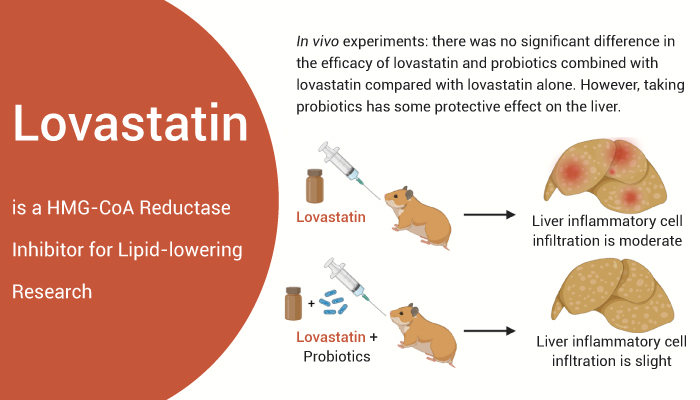HMG-CoA, also known as 3-hydroxy-3-methylglutaryl-CoA, is an intermediate in the mevalonate and ketogenic pathways. HMG-CoA reductase catalyzes the conversion of HMG-CoA to mevalonate, an essential step in cholesterol biosynthesis. High levels of cholesterol in the blood can cause hypercholesterolemia, also known as high cholesterol. Meanwhile, inhibition of mevalonate pathway intermediates is associated with brain tumor stem cell (BTSC)-related signaling cascades and oncogene expression.
Therefore, HMG-CoA reductase inhibitors (statins) are widely used drugs that interfere with cholesterol biosynthesis in hypercholesterolemia and have potential anticancer activity. These inhibitors reduce blood LDL levels by inducing the expression of the LDL receptor (LDLR). Statins have been reported to prevent at least stomach cancer, liver cancer, and lymphoma. The antitumor effects of HMG-CoA reductase inhibitors do not depend on a lack of cholesterol production but rather upon supplementation with mevalonate or geranyl-geranyl pyrophosphate (a prerequisite for prenylation of small G proteins). ) to restore. Here we introduce an HMG-CoA reductase inhibitor, Lovastatin.
Lovastatin shows significant inhibitory effect in hypercholesterolemia and cancer research.
Lovastatin is cell-permeable and affects the mevalonate pathway. It reduces cholesterol synthesis, including lowering circulating total cholesterol and low-density lipoprotein (LDL) cholesterol levels in animals and humans. Lovastatin has a selective cytotoxic effect on liver cancer cells and can induce p53-dependent apoptosis in tumor cells. For example, it targets glioblastoma and also effectively reduces HepG2 cell viability (10 μM; 72 h) or induces apoptosis in HepG2 cells (10 μM; 48 h). Lovastatin has also been shown to promote differentiation and proliferation of various stem cell types. For example, Lovastatin induces stem cells to differentiate into the osteoblast lineage and prevents apoptosis caused by hypoxia (as in the case of MSCs) and oxidative stress (as in the case of NSCs).
In summary, Lovastatin is an HMG-CoA reductase inhibitor used to reduce the cell permeability of cholesterol. It can effectively reduce endogenous cholesterol synthesis and is used in the study of hypercholesterolemia.
References:
[1]. Alberts AW, et al. Am J Cardiol. 1988 Nov 11;62(15):10J-15J.
[2]. Kah J, et al. Oncol Rep. 2012 Sep;28(3):1077-83.
[3] Amadasu E, et al. Cell Transplant. 2022 Jan-Dec.
